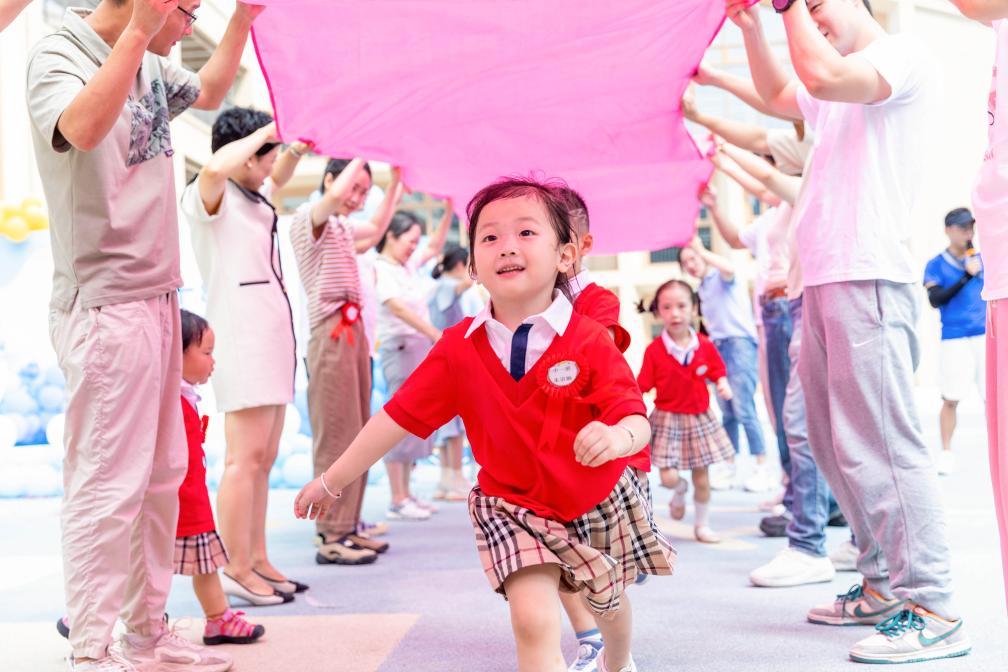
Children take part in a parent-child game at a kindergarten in Wenzhou, East China's Zhejiang province, Sept 2, 2024. [Photo/Xinhua]
A work plan aiming to bring government departments, families, schools and social efforts together to build a sound environment for children's healthy growth was unveiled to the public on Friday.
The document was jointly released by the Ministry of Education, as well as 16 other authorities, including the Cyberspace Administration of China, the Ministry of Public Security, the National Health Commission and the National Cultural Heritage Administration.
To make primary and secondary school students grow healthy and happy, the plan requires government agencies, families, schools and social organizations, as well as more entities, such as those related to safety and culture, to form an alliance to provide children with comprehensive protection, address their prominent problems and enrich their daily lives.
For example, it calls for the authorities to set up regular communication and coordination systems to help solve emerging problems and challenges in the growth of children, offering them with support and guarantee in various aspects such as study, social practices and participation in sports, arts, labor and scientific activities.
It is proposed that by 2025, such an alliance should be established in 50 percent of counties nationwide, with the goal of achieving full coverage in all counties by 2027.
The work plan also specifies the responsibilities and obligations of key players in such an alliance. For instance, it asks governments to strengthen the overall leadership of the collaboration, urging public security organs to intensify the security supervision in and around school campuses.
Cyberspace administrations should take measures to purify the online environment, while health departments need to pay high attention to children's psychological health, according to it.
In addition, it orders communities and social organizations, including patriotism education bases, stadiums, museums, medical and health institutions, universities and companies, to fulfill their educational obligations within their respective functional areas.
Furthermore, the work plan clarifies that parents and caregivers should be responsible for family education by fostering a positive and healthy family environment, adopting educational philosophies in a scientific manner and actively collaborating with schools.
Schools need to help tackle problems faced by students growing up, shouldering the responsibilities of offering professional guidance for the family education and optimizing their work by taking the advice and suggestions from parents and society on board.
Xu Nuo contributed to this story.